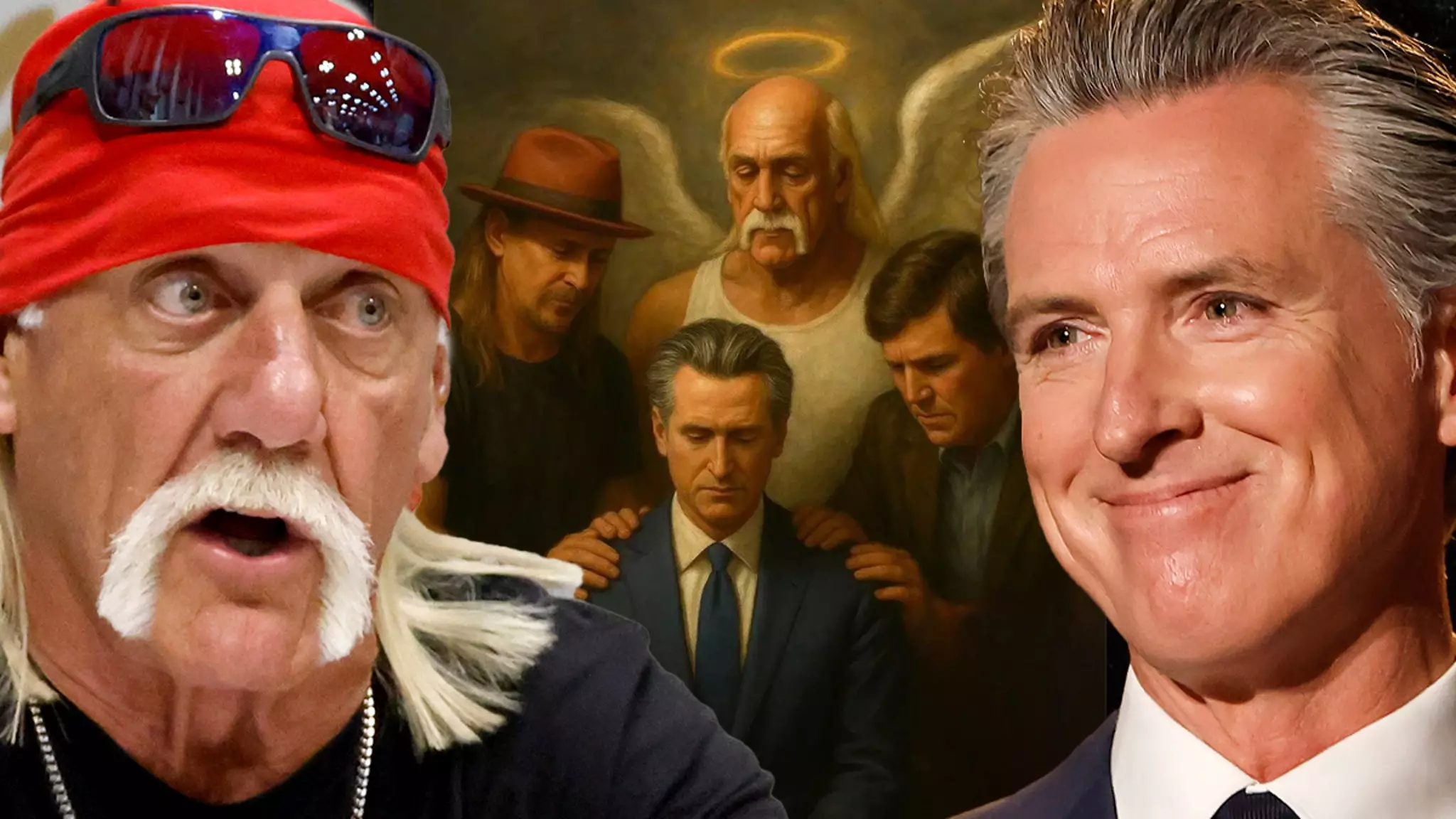In recent years, politicians have increasingly turned to social media to craft their image, often employing humor, shock value, or controversy to garner attention. While these tactics can generate buzz, they risk alienating voters if they appear inauthentic or overly contrived. Gavin Newsom’s recent attempt to mimic former President Trump’s meme strategy exemplifies this dilemma. His AI-generated image featuring Hulk Hogan, Kid Rock, and Tucker Carlson adorned with angel wings, was clearly designed to provoke and mock Trump supporters. However, the reaction indicates that such tactics can backfire, especially when they lack genuine relevance or resonate with audiences authentically.
Political messaging rooted in sincerity tends to resonate more deeply than superficial shock tactics. When leaders focus on substantive issues and connect with their constituents’ values, they foster trust and loyalty. Memes and social media stunts, while quick ways to attract attention, often fade quickly and can undermine the credibility of responsible leadership. Newsom’s attempt shows a misjudgment—a desire to appear witty or rebellious without genuine understanding of the complexities involved in political discourse.
The Danger of Superficiality and the Importance of Real Connections
A critical flaw in Newsom’s approach is its reliance on spectacle over substance. By employing humor that appears disconnected from actual policy or meaningful debate, leaders risk cultivating a reputation for insincerity. The meme’s use of Hulk Hogan, famously known for his conservative stance and support for Trump, was supposed to serve as a provocative punchline. Instead, it underscored the dissonance between crafted digital personas and genuine personal beliefs. Hulk Hogan’s ex-wife Linda Hogan’s critique highlights a crucial point: even figures with known political leanings may be uncomfortable being leveraged for partisan games.
Authentic leadership doesn’t depend on copying tactics but on cultivating honest dialogue. Effective communication involves understanding and engaging with the concerns of voters sincerely, rather than relying on memes that may be interpreted as childish or trite. The nuances of politics require a sense of credibility and integrity—qualities that are often sacrificed when leaders resort to gimmicks. When the lines between entertainment and policy become blurred, the risk is that voters detach from meaningful engagement, perceiving leaders as entertainers rather than problem-solvers.
The Consequences of Disingenuous Political Posturing
The backlash against Newsom’s meme underscores an essential truth: voters increasingly value authenticity over spectacle. In a media landscape saturated with superficial content, genuine connections can be a rare and powerful currency. Using offensive or juvenile humor, especially when it involves public figures with established beliefs, can diminish a leader’s credibility. Hulk Hogan’s outright disapproval demonstrates that even figures associated with conservative values may reject being used as pawns in political games they don’t endorse.
Furthermore, such stunts risk normalizing a culture of triviality in public discourse. When political figures prioritize viral moments over meaningful policy discussions, they undercut democracy’s foundation—the informed and engaged citizenry. The backlash also illustrates that no matter how clever or edgy a meme appears, it may not translate into long-term political gains. Instead, it fosters cynicism and disengagement, as audiences see through the veneer of humor to the emptiness of the substance beneath.
Effective political communication requires more than shock value. Leaders who prioritize authentic engagement build trust, foster respect, and ultimately reinforce the democratic process. Memes can serve a purpose, but only when rooted in honesty and genuine intent, not when used as desperate attempts to mimic viral success narratives.

